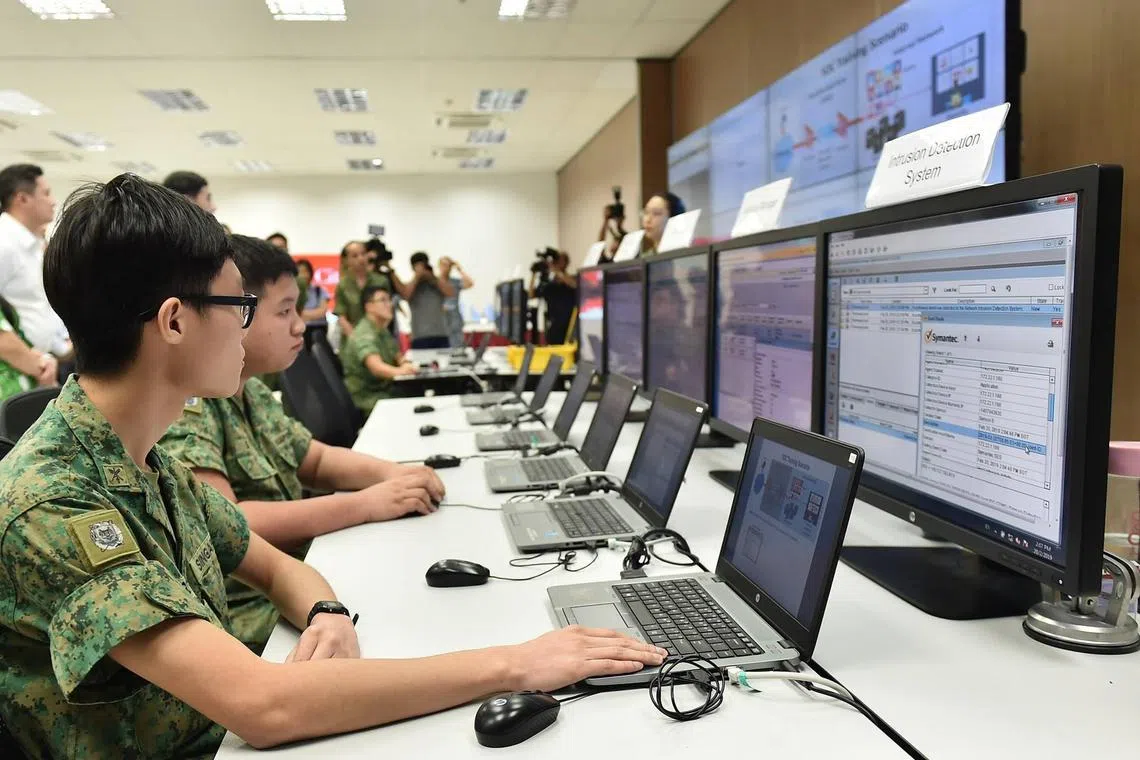Fourth service’s role is to foster co-existence between SAF and commercial sector: DIS chief
Sign up now: Get ST's newsletters delivered to your inbox

The challenge is to get the military and creative industries to live side by side and interact selectively, said BG Lee Yi-Jin.
PHOTO: MINISTRY OF DEFENCE
SINGAPORE - The military’s preference for structure and tradition has its place and purpose, but failure to adapt and to integrate commercial technologies will mean missing out on new capabilities.
Solving this contradiction is a key reason why the Digital and Intelligence Service (DIS) was formed, the service’s chief, Brigadier-General Lee Yi-Jin, said on Thursday.
“The challenge is how the military and creative industries can live side by side (and) interact selectively with each other,” he said.
“Creating DIS gives us an opportunity to do that,” he added, noting that it would have been a lot harder to change mindsets if DIS was just a small part of the army, navy and air force.
DIS, which was inaugurated as the Singapore Armed Forces’ fourth service
Speaking during a panel discussion at the 4th Singapore Defence Technology Summit held at Shangri-La Hotel, BG Lee said private corporations already play a role – even a possibly decisive one – in today’s battles, pointing to the involvement of entities such as Microsoft and tycoon Elon Musk’s SpaceX in the ongoing Russia-Ukraine conflict.
SpaceX, which initially enabled Ukrainian forces to communicate through its network of Starlink satellites,
Microsoft, on the other hand, suspended sales of its products and services to Russia, and has been supporting Ukraine in its digital defence by detecting, assessing and protecting it against Russian cyber attacks.
BG Lee said at the conference: “Regardless of where you stand on this particular conflict, many militaries and governments would have found it quite discomforting... the extent to which corporations can play a decisive role.”
Businesses may make their decisions based on their conscience and shareholders’ concurrence, but governments and militaries need to be part of the conversation, he added on the importance of setting policies on how technology is integrated into warfare.
BG Lee’s comments echoed those of Deputy Prime Minister Lawrence Wong, who said in a speech earlier in the day that countries need to take a hard look at how their militaries adapt and integrate commercial technologies
This includes relooking how defence systems are developed and procured, as well as working more closely with commercial entities, given the speed of technological change, said Mr Wong.
“These moves will not be easy – they involve not just organisational changes, but also cultural changes too,” he said. “But they are necessary for the defence sector to fully benefit from digital and dual-use technologies.”
Fellow panellists in the afternoon discussion agreed that the world’s shift into a highly digitalised era will not be without challenges, with Mr James Allen, executive vice-president of cyber-focused consultancy Booz Allen Hamilton, urging those in the military, government and corporate sectors to keep adapting so as to fully evolve with and be able to tap technology.
More than any prior period, now is the time for deeper investments to help people transition amid these advancements, said Ms Lila Tretikov, corporate vice-president and deputy chief technology officer of Microsoft.


